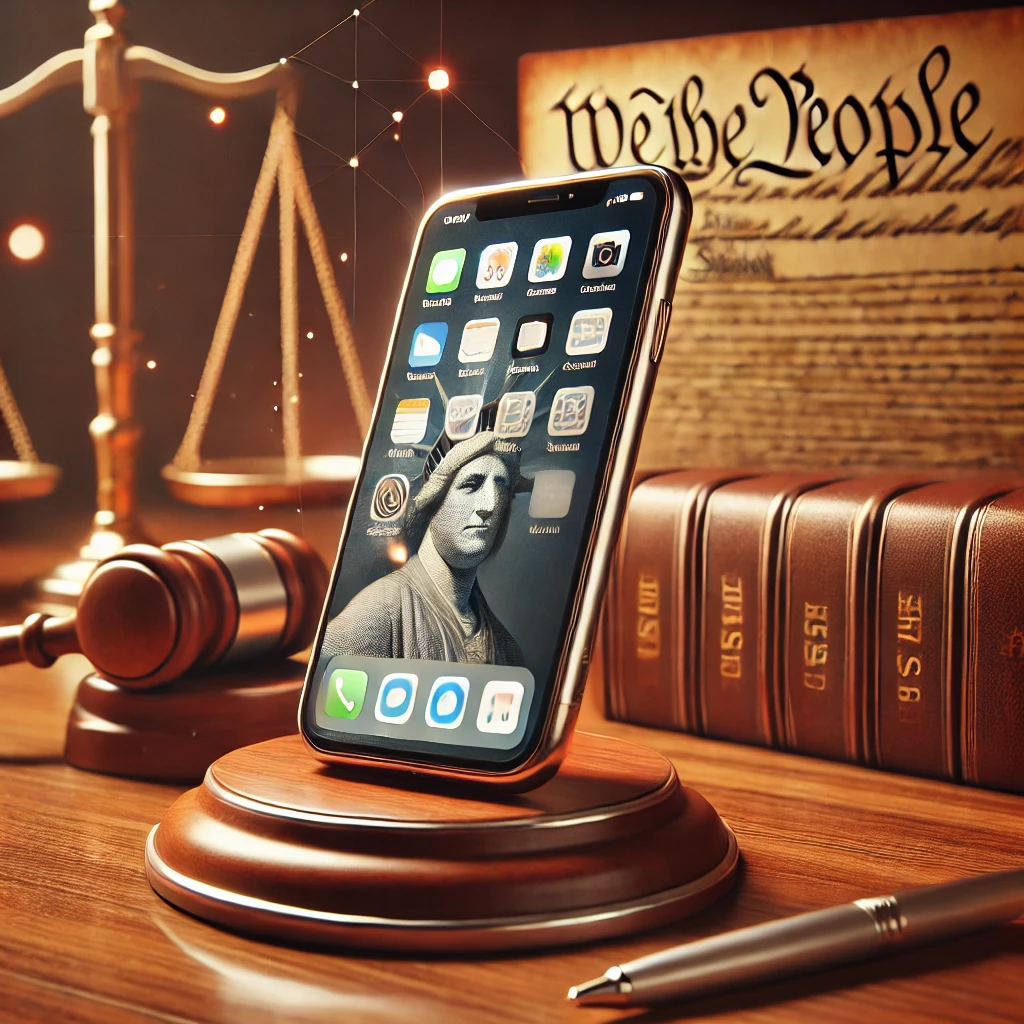
Border Searches, Cell Phones, and the Fourth Amendment: Examining the Limits of Law Enforcement Authority
United States v. Djibo, 151 F. Supp. 3d 297 (E.D.N.Y. 2015).
Summary of the Case
This case involves important questions about constitutional protections against unreasonable searches and the rights of individuals when crossing U.S. borders. Specifically, it addressed whether law enforcement officers violated constitutional protections by searching a cell phone and using its contents in a criminal investigation without adhering to Miranda rights and the Fourth Amendment’s warrant requirement.
Facts of the Case
- Background: Law enforcement stopped Adamou Djibo, suspected of orchestrating an international heroin smuggling operation, as he attempted to leave the U.S. at JFK Airport.
- Search and Seizure: Agents asked Djibo for the passcode to his iPhone, claiming it was part of a border currency search. They later used a forensic tool to extract detailed data from the phone without a warrant.
- Discovered Evidence: Texts, emails, and WhatsApp messages revealed coded communications and potentially incriminating information.
- Procedural Issues: Djibo moved to suppress the evidence obtained from his phone, arguing that:
- He was interrogated without being properly informed of his rights (a Miranda violation).
- The search of his phone violated Fourth Amendment protections against unreasonable searches.
Court’s Analysis
Miranda Violation:
- The court found that Djibo was effectively in custody when agents asked for his phone passcode, as he was isolated in a private area and unable to leave.
- Because he was not informed of his Miranda rights, his statement providing the passcode was deemed inadmissible.
Fourth Amendment Violation:
- The court ruled that the warrantless search of Djibo’s phone was unconstitutional.
- While border searches are an exception to the Fourth Amendment, this exception did not apply because the search went beyond the scope of checking for contraband (e.g., drugs or currency) and lacked a connection to border security.
“Fruit of the Poisonous Tree”:
- The initial illegal search (dubbed a “peek”) influenced subsequent searches, making the later warrant-based search invalid.
- The court concluded that law enforcement improperly relied on information gathered from the illegal initial search.
Inevitable Discovery Rejected:
- The government argued that it could have accessed the phone without Djibo’s passcode using hacking tools.
- The court rejected this, citing unreliable evidence about the tools’ capabilities and risks.
Conclusion and Outcome
The court suppressed all evidence obtained from Djibo’s phone, ruling that:
- Law enforcement violated his Fifth Amendment rights by interrogating him without a Miranda warning.
- The search of his phone without a warrant violated the Fourth Amendment.
- Evidence from the illegal search could not be used in court, as it was tainted by constitutional violations.
This decision reinforced the principle that modern cell phones, given their vast storage of personal data, require strong Fourth Amendment protections and cannot be searched without proper legal safeguards.
Let’s Get Started
Your legal challenges deserve personalized attention and innovative solutions. Contact Oware Justice Advocates PC today for a consultation and take the first step toward resolution and peace of mind.
355 South Teller Street, Suite 204,
Lakewood, CO 80226
(Visits to the office are strictly by appointment only)
303-514-6589

